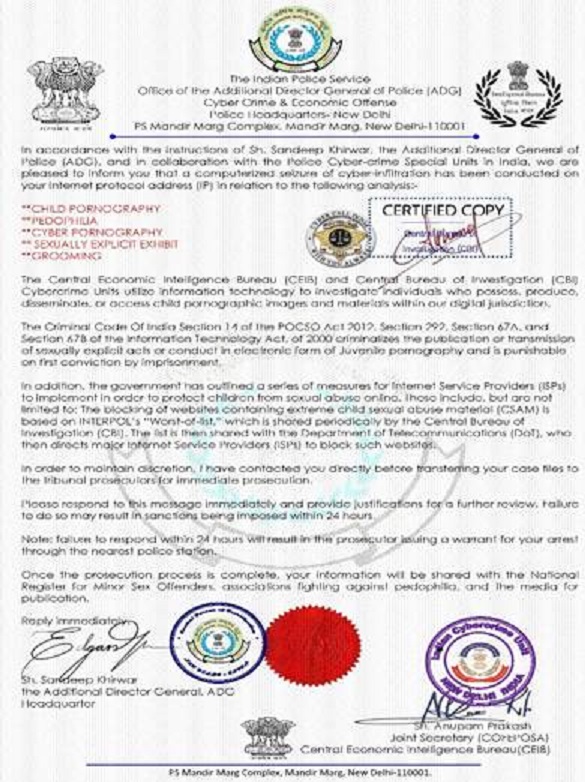As per Section 2(11) of the Central Goods and Services Act, 2017, GST Assessment means determination of tax liability as per provisions of CGST Act, 2017 and it includes self-assessment, provisional assessment, re-assessment, summary assessment and best judgments assessment etc.
Page Contents
- Types of assessment under GST
- (1) Self-Assessment under GST (Section-59)
- (2) Provisional Assessment under GST (Section-60)
- (3) Scrutiny of GST Returns (Section-61)
- (4) GST Assessment of non-fillers of returns (Section-62) {Best Judgment Assessment under GST)
- (5) GST Assessment of unregistered person (section-63)
- (6) Summary GST assessment in certain special cases (Section-64)
Types of assessment under GST
(1) Self-Assessment (section-59)
(2) Provisional Assessment (Section-60)
(3) Scrutiny of Returns (Section-61)
(4) Assessment of non-fillers of return (Section-62)
(5) Assessment of unregistered person (section-63)
(6) Summary Assessment (Section-64)
Self-assessment made by registered person himself/itself while all other assessment undertaken by tax authorities. Provisional Assessment undertaken at the instance of registered person.

(1) Self-Assessment under GST (Section-59)
The GST regime continues to promote the scheme of self-assessment like erstwhile indirect tax laws. Self-assessment means determination of tax liability by registered person on his own and furnishes the return for each tax period as per section 39 (Monthly Return, GSTR-3/3B). Self-assessment under GST is undertaken by registered person himself and not by proper officer.
If registered person observes any discrepancy in return furnished, the GST law permits a registered person to rectify incorrect particulars or any error, omission in return for the month in which such error or omission discovered but within time limit as specified in section 39.Further as per Para 4 of circular 26/2017, dated 29.12.2017, in summary returns like GSTR-3B, Where there is no separate table for reflecting the tax effects of amendments, such amendments can be adjusted in current month figures.
(2) Provisional Assessment under GST (Section-60)
We all know that GST Amount= Value of supply * Rate of tax. Now If taxable person is unable to determine the value of goods/services or rate of tax applicable thereto, he may request proper officer (Form ASMT-01, along with supporting documents), for payment of tax on provisional basis. The provisional assessment under GST can be sought only in the case of value or rate of tax and cannot be sought in any other case like kind of tax applicable (inter state or intra state), time of supply, supply to be treated as supply of goods or services etc. The proper officer may issue a notice in form ASMT-02, requiring additional information in relation to provisional assessment and registered person will furnish reply in form ASMT-03 or may appear in person before officer. After satisfaction, proper officer will issue order (ASMT-04, within 90 days of furnishing request) allowing payment of tax on provisional basis indicating rate or value or both on the basis of which provisional assessment be allowed along with amount for which bond to be executed and security to be furnished not exceeding 25 % of bond amount. Bond to be furnished in form GST ASMT-05 and security to be furnished in the form of bank guarantee.
The proper officer will issue a notice in form ASMT-06 for calling records and documents for finalizing the assessment and shall issue final assessment order in Form GST ASMT-07 (within six months of provisional assessment order or within further extended period as allowed by commissioner), specifying amount payable or refundable to registered person. If balance is payable then interest to be paid by registered person @ 18% from the day next to due date till the payment date.
After the payment of amount specified in assessment order, he may file application for release of security.
**Bond is furnished for binding the taxable person for payment of difference between the amount of tax as may be finally assessed and the amount of tax provisionally assessed.
**The proper officer in normal course, cannot pass an order rejecting the application for provisional assessment.
**if bond and security is not furnished within time period specified in provisional assessment order, then provisional assessment shall lapse.
(3) Scrutiny of GST Returns (Section-61)
Where a GST return furnished by registered person selected for scrutiny, The proper officer may scrutinize the same along with related particulars furnished by registered person, to verify the correctness of return. In case of any discrepancy is noticed, he shall issue a notice in ASMT-10 informing him of discrepancy and seeking explanation thereto within 30 days of service of notice. Wherever possible proper officer will quantify the amount of tax, interest and other dues in relation to discrepancy.
If proper officer agrees with explanation furnished by registered person in form ASMT-11, no further action will be taken.
If registered person agrees with discrepancy, he will deposit the amount specified in notice and take the corrective action as specified in notice.
And if registered person does not furnish explanation or satisfactory explanation is not furnished or does not take corrective measures in return for the month in which discrepancy is communicated, the proper officer may take appropriate action in accordance with section-65, 66 and 67. Notice For Discrepancies In GST RETURN – What to Do??
** Section-65 ( Department audit), section-66- (special audit), Section-67 (Inspection, search and seizure)
(4) GST Assessment of non-fillers of returns (Section-62) {Best Judgment Assessment under GST)
The provisions of section 62 of CGST Act, 2017 related to GST Assessment of non-fillers of returns is applicable only in case of registered person, who have not filled the return u/s 39 (monthly return) or u/s 45 (final return on cancellation of registration)
Even after service of notice u/s 46 (issued to person requiring furnish return within 15 days, if not filled earlier). The proper officer may proceed to determine the tax liability of such person to the best of his judgment considering all the relevant material he has gathered and pass the assessment order in form ASMT-13 within 5 years from the due date of furnishing annual return for the financial year for which tax not paid relates.
If registered person furnish the valid return within 30 days of service of assessment order, then the said assessment order deemed to be withdrawn (But liability to pay interest and late fees still be applicable).
(5) GST Assessment of unregistered person (section-63)
The provisions of this section is applicable in case a person is required to obtained GST registration, but failed to obtain or a person whose GST registration is cancelled as per section 29(2) {some cases are listed when registration of person gets cancelled by proper officer). The proper officer may proceed to assess the tax liability of such person to the best of his judgment considering all the relevant material he has gathered within a period of 5 years from the due date of furnishing annual return for the financial year for which tax not paid relates.
For passing the assessment order under this section, the proper officer will issue a notice in form ASMT-14, containing the grounds on which assessment is proposed to be made and after considering the reply proper officer will issue order in form ASMT-15.
(6) Summary GST assessment in certain special cases (Section-64)
Summary GST assessment generally denotes fast track assessment in tax legislation. It is completed ex-parte and on priority basis when there is reasons to believe that there will be loss of tax revenue.
If proper officer has evidence that tax liability of a person coming to his notice and he has reasons to believe that any delay in doing so will adversely affect revenue, he may with prior approval of additional commissioner/joint commissioner, may proceed to assess the tax liability of such person to protect the interest of revenue and pass the assessment order. Failure to pay tax at the part of assesse may be due to any reason such as insolvency, absconding, instances of defaulting. Where person to whom tax liability pertains is not ascertainable, person in charge of goods shall be deemed to be taxable person.
The summary assessment order shall be issued in form GST ASMT-16.The taxable person may file an application in form ASMT-17, within 30 days from receipt of order or commissioner may on his motion withdraw such order if he considers that such order is erroneous and follow the procedure laid down in section 73 to 74.





























Congratulations bro
Thanks for sharing. Very helpful!